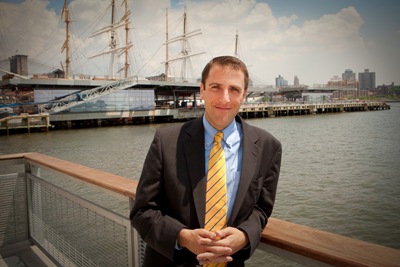Build NYC, a New York City-sponsored low-cost financing facility for real estate developments undertaken by non-profits and academic institutions, approved $75.6 million of new loans this morning for four projects.
The Seaview Senior Living Housing Development Fund Corporation, received approval for a $33.6 million loan it will use to build a 103,000-square-foot, 188-bed assited living facility, an ancillary building and renovate an existing property in the Willowbrook neighborhood on Staten Island.

HealthCare Chaplaincy, Inc., will borrow $20 million through the funding vehicle to help pay for the cost of building and furnishing an over-50,000 square foot condo unit it will occupy in 261 South Street, a 195,000-square-building that will be built on the Lower East Side.
All Stars Project, Inc., an arts and cultural education not-for-profit, will refinance $11 million in existing debt.
The Browning School, a non-profit prep school, will receive an $11 million loan to renovate and expand its main facility at 52 East 62nd Street.
Build NYC also approved a $1.4 million mortgage recording tax exemption to Hutch Tower Two, a new 280,000-square-foot office building in the Bronx built by Simone Development. The exemption will be passed along to Montefiore Medical Center, which is leasing the entire building.
“With five more projects assisted this month, Build NYC continues to distinguish itself as a critical resource for city non-profits looking to reduce costs and finance new expansion projects,” said Seth Pinsky, the New York City Economic Development Corporation’s president who is also chairman of Build NYC. “In particular, the financing approved for the Seaview Senior Living Housing Development marks an extraordinarily important milestone for this project, which will soon greatly benefit Staten Island’s growing senior community.”
The city opened Build NYC’s borrowing window late last year to provide non-profit and academic institutions with a source of capital to fund development projects. The facility created an alternative to a similar state-sponsored vehicle that expired in recent years.
The city doesn’t provide the funds. Rather, the vehicle allows approved borrowers to issue bonds that are purchased by private buyers. The proceeds on the debt are tax exempt, meaning bondholders will accept a lower rate of return, which, in turn, allows the borrower a cheaper cost of financing.



